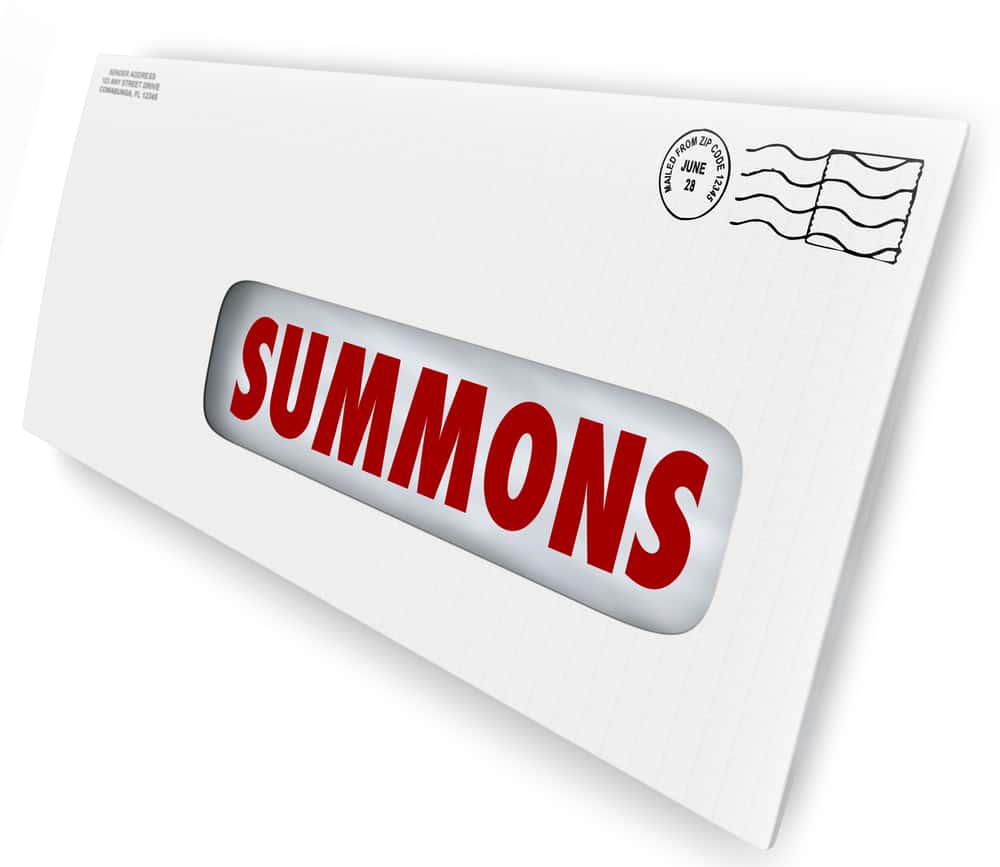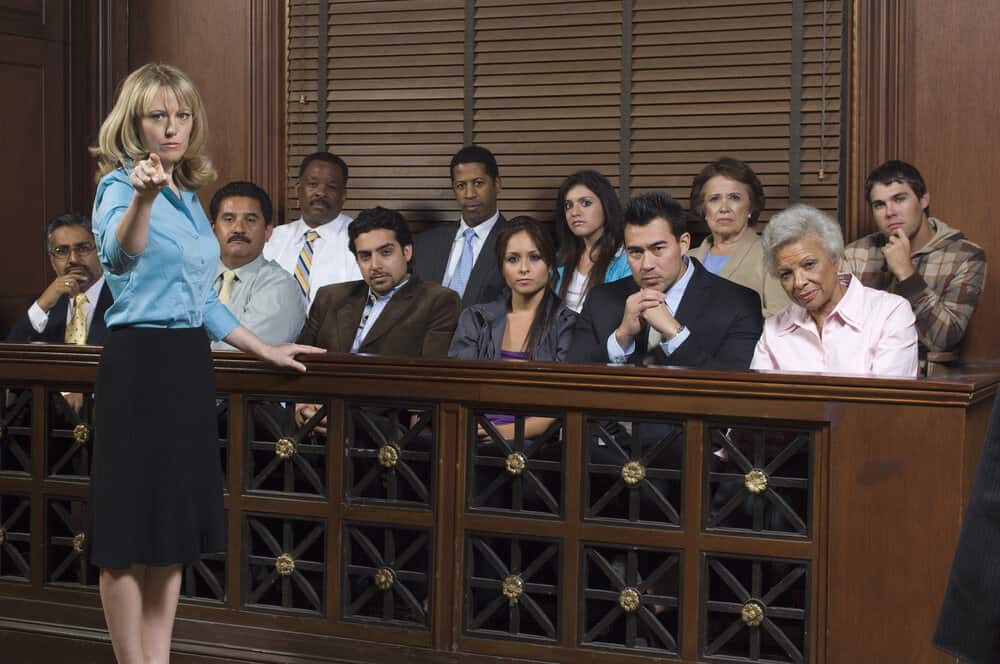SCAM ALERT: Do Not Pay Callers Who Claim You Missed Jury Duty
The U.S. Federal Courts sent out this bulletin on 08/01/2024 at 04:22 PM EDT.
Serving on a jury is an important civic duty in many countries, and the legal system depends on the unbiased judgment of jury members. However, certain mental conditions may disqualify an individual from participating in this responsibility. Understanding which conditions disqualify a person from jury duty can help ensure the judicial process remains fair and impartial.
A mental health condition may sometimes impair an individual’s ability to comprehend complex information or affect their judgment. This can potentially compromise the fairness of a trial, making it essential to identify and exclude individuals with such conditions from participating in the jury. Various jurisdictions have different rules and guidelines for determining eligibility for jury service. Still, some common mental health-based disqualifications may include severe cognitive impairments, active psychosis, or a history of involuntary psychiatric hospitalization.
It is crucial to note that mental health does not automatically disqualify someone from serving on a jury. Many people with such conditions can still contribute meaningfully to the legal process. However, when particular mental health issues pose a risk to the integrity of the trial, it becomes necessary to exclude those individuals from jury duty to maintain the fairness central to a just legal system.
Mental Conditions and Jury Duty
Jury duty is a civic responsibility that requires individuals to be impartial and mentally capable of serving as jurors. Certain mental conditions can disqualify a person from performing this duty. This section will discuss common disqualifying mental conditions and how various state laws may affect eligibility for jury duty.
Common Disqualifying Mental Conditions
While the specific conditions that disqualify someone from jury duty can vary depending on the jurisdiction, several common mental illnesses may be considered disqualifying:
- Bipolar disorder: Characterized by extreme mood swings, this condition may hinder a juror’s ability to remain objective and focus on the facts of a case.
- Anxiety disorder: Severe anxiety may impair a juror’s ability to concentrate, make decisions, or participate in group discussions.
- Dementia: This condition affects memory and cognitive abilities, making it difficult for a juror to understand and process information during a trial.
State Laws and Variations
Each state may have different laws and criteria for disqualifying potential jurors due to mental conditions. Here are some examples from selected states:
- California: Under California law, a person can be disqualified from jury duty if they have a mental or physical condition that prevents them from serving and providing a valid doctor’s note.
- Massachusetts: In this state, “a mental or physical condition that causes them to be incapable of rendering satisfactory jury service” can disqualify someone from jury duty with proper documentation.
- Hawaii: Hawaii stipulates that a person is disqualified from jury duty if they “have a mental or physical infirmity rendering the person unable to serve as a juror.”
- North Carolina: Here, the law states that a person is disqualified from serving as a juror if they “suffer from a mental or physical infirmity which is likely substantially to impair the performance of their duties.”
- Delaware: Delaware law disqualifies individuals “incapacitated from rendering satisfactory service as a juror because of permanent illness, mental retardation, or mental disorder.”
- Wisconsin: In Wisconsin, a person is disqualified from jury duty if they “have difficulties in understanding or communicating in the English language or have a mental or physical condition that makes them incapable of jury service.”
Individuals with mental conditions must understand their state’s laws and requirements regarding jury duty disqualification. Proper documentation of a mental illness can help ensure an accurate determination of eligibility for jury service.
Understanding Exemptions and Excuses
When it comes to jury duty, individuals may be exempt or excused for various reasons. Understanding these exemptions and excuses can help potential jurors determine eligibility to serve.
Automatic Exemptions
Some individuals may be automatically exempt from jury service due to specific criteria. Common automatic exemptions include:
- Age: In some jurisdictions, individuals over a certain age, usually 65 to 75, may be exempt.
- Public officers: Certain public officers, such as judges, legislators, and other elected officials, may be exempt during their term of office.
- Firefighters, ambulance crew, and rescue squad: Members of these emergency services may also be exempt.
- Volunteer safety personnel: Volunteers who provide safety services, such as firefighting and rescue support, may be exempt.
These exemptions vary by jurisdiction, so it is important to refer to local laws and regulations for a definitive list.
Case-by-Case Excuses
Some individuals may qualify for an excuse from jury duty on a case-by-case basis, depending on their circumstances. Such excuses usually require documentation and might include the following:
- Undue hardship: Experiencing extreme financial or personal hardship, such as a recent job loss or a family emergency.
- Illness or health: Mental or physical illness may be grounds for an excuse if it would impact the individual’s ability to serve on a jury.
- Pregnant or primary caregiver: If a person is pregnant or the primary caregiver for a family member, they may be excused from jury service.
- Out of town: A juror who is temporarily out of town or has a pre-planned vacation during jury service might be excused.
Requesting Postponement
In some cases, individuals may not qualify for an exemption or excuse but may be able to request a postponement of their jury duty. This can be due to:
- Civil rights concerns: If an individual’s jury service may conflict with their civil rights or religious observances, a postponement can be requested.
- Employer requirements: If an employer cannot accommodate the employee’s absence due to the nature of the job or the employer’s policy, a juror may request a postponement.
Jurors are encouraged to communicate with their local court to discuss their specific circumstances and potential eligibility for exemption, excuse, or postponement.
Qualifications and Disqualifications for Jurors
Mandatory Qualifications
To serve as a juror, one must meet certain qualifications. In the United States federal courts (and most state courts), a person must be a citizen and a resident of the judicial district where they are called to serve. Jurors must be at least 18 years of age and proficiently understand English. Additionally, they cannot be facing any felony charges or have been convicted of a felony without having their civil rights restored.
Disqualifying Factors
While meeting the mandatory qualifications is essential, several factors may disqualify a person from jury duty. A person may be disqualified if diagnosed with a mental condition impairing their ability to serve effectively and fairly as a juror. This could include conditions that impact an individual’s reasoning abilities, comprehension, or emotional stability.
In some cases, certain individuals may be disqualified due to their experience or association with specific professions. For example, active members of the armed forces, members of the police department, or professional public safety officers may be exempt from serving on a jury
This varies by location. For example, automatic exemptions were eliminated in New York to increase fairness. Anyone living in New York State over 18, regardless of age or occupation, is subject to jury duty. The mayor of New York City, Rudy Guiliani, had to take time off from official duties to serve on a jury.
In summary, meeting the mandatory qualifications is necessary. Still, additional disqualifying factors, such as mental conditions or professional connections, may prevent an individual from serving as a juror.
The Jury Selection Process
Juror Questionnaire
The jury selection process begins with potential jurors receiving a juror questionnaire. This document assists the court system in determining who is eligible for jury service. The questionnaire covers essential information, such as the individual’s background, job, and potential biases. Additionally, it may ask about mental conditions or excuses that might disqualify someone from serving on a petit jury.
A juror with a mental condition may provide documentation or proof of their condition, such as a diagnosis from a healthcare professional. Anxiety disorders, for example, may qualify as a valid excuse but typically require proper documentation to be considered.
The Voir Dire Process
Following submitting the juror questionnaire, the court system proceeds to the voir dire process, a crucial part of jury selection. Here, a judge and attorneys from both sides interview prospective jurors to assess their ability to serve on a criminal trial impartially. During this stage, potential jurors can disclose any mental conditions that might prevent them from effectively concentrating and fulfilling their civic duties in the justice system.
Court officials evaluate all provided excuses on a case-by-case basis, ensuring that the jury comprises diverse and unbiased members. Addressing mental conditions during this phase ensures the selected jurors can provide fair judgment throughout the trial.
Medical Conditions and Jury Duty
Regarding jury duty, certain medical and mental conditions can lead to individuals being exempt or excused from serving. It’s important to understand which conditions may disqualify someone and the necessary steps to be taken to request an exemption.
Providing Proof of Medical Condition
To be excused from jury duty due to a medical condition, it’s typically necessary to provide evidence of the illness or disability. This usually involves obtaining a letter or documentation from a licensed physician. The physician should explain the nature of the medical or mental condition and any additional treatments or medications the person takes.
The court will review the provided documentation and assess whether the individual can serve on a jury. Decisions are generally made on a case-by-case basis, considering the potential juror’s circumstances.
Physical Conditions
Physical conditions can also affect a person’s ability to serve as a juror. These may include, but are not limited to:
- Mobility impairments
- Chronic pain
- Severe respiratory conditions
- Vision or hearing impairments
Additionally, age may be a factor in jury duty exemptions. Some jurisdictions have specific age limits where individuals above a certain age can request excusal from jury duty without needing medical evidence.
It’s worth noting that some physical conditions may not automatically disqualify someone from jury service. The court may consider making accommodations for jurors with disabilities, such as providing wheelchair access or assistive listening devices. However, the court may ultimately grant a medical exemption if these accommodations cannot mitigate the juror’s hardships.
In conclusion, medical and mental conditions, as well as physical disabilities, can play a significant role in determining whether an individual is exempted or excused from jury duty. Those affected by such conditions must consult a physician and provide the necessary documentation to the court. Determinations are made on a case-by-case basis, and accommodations may be provided to those with disabilities to ensure a fair and inclusive jury process.
Rights and Responsibilities of a Juror
Civic Duty
Jury duty is a fundamental part of a democratic society. As a juror, one has the responsibility to uphold the civil rights of the accused by participating in a fair and just trial. Serving in a jury is a civic duty that allows individuals to contribute to the justice system and ensure that all citizens receive a fair trial.
Jury service can be stressful for some individuals, as they may face challenges balancing their personal and professional lives during the trial process. However, it is crucial to prioritize this civic duty and approach it with a serious understanding of the responsibilities entrusted to jurors.
Understanding Contempt of Court
Jurors are bound by specific rules and regulations while serving on a jury. One of the main responsibilities is to follow the court’s instructions to avoid any misconduct that could cause a mistrial or contempt of court. Contempt of court refers to behavior that disrespects or disregards the court’s authority and can result in serious consequences.
For example, jurors:
- Must attend all court sessions and be punctual.
- Cannot discuss the case with anyone outside the jury or seek external information about the case.
Jurors must understand and respect the court’s authority to maintain the justice system’s integrity. By doing so, jurors actively contribute to safeguarding the civil rights of the accused and ensuring a fair and unbiased trial.
Mental Health Support for Jurors
Jury duty can be a significant responsibility that may cause stress and anxiety for some individuals. Jurors need to prioritize their mental health during their service. This section discusses the available support and resources for jurors to maintain their mental well-being throughout the process.
Finding Support
When dealing with the emotional impact of jury duty, individuals need to seek support from those around them. This may include friends, family, or colleagues who may have previously gone through a similar experience. By sharing their thoughts and feelings, jurors may find it easier to cope with the stress and anxiety that may arise from their responsibilities.
In some cases, jurors may benefit from seeking professional support from a therapist or counselor. These mental health professionals are trained to provide guidance and coping strategies tailored to an individual’s needs. By engaging in therapy, jurors can work through their concerns and emotions, minimizing the potential negative effects of their service.
Resources
Many resources are available to help jurors focus on their mental health during their service. These resources include support groups, online forums, and mental health websites with information about self-care strategies tailored to jury duty experiences. By utilizing these resources, jurors can find solace in knowing they are not alone in their feelings.
In addition to publicly available resources, jurors may also be connected to mental health support services through their courthouse or juror services department. Individuals must explore their options and take advantage of any resources they feel can benefit their overall mental well-being during their jury service.
Legal Professionals and Jury Duty
Lawyers and Judges as Jurors
Mental conditions play a role in determining an individual’s eligibility for jury duty. Potential jurors may be disqualified if certain mental conditions affect their ability to serve fairly and impartially. The same standards apply to legal professionals, such as lawyers and judges, when called for jury service.
Legal professionals bring a unique background to a jury panel. Their comprehensive understanding of the legal system can be both an asset and a cause for concern. On the one hand, their law knowledge may expedite the deliberation process or provide useful insights. On the other hand, there’s a risk that their expertise could unduly influence the other jurors.
Although the selection process for legal professionals is generally similar to that of the general public, the criteria for disqualification may differ slightly. For instance, a lawyer might be excluded from serving on a jury in a case involving a client they previously represented. In contrast, a judge could be disqualified due to prior involvement in the case or a close relationship with one of the parties. Here are some considerations when assessing the eligibility of lawyers and judges as jurors:
- Mental capacity: Legal professionals must be mentally fit and capable of serving on a jury without significant cognitive impairments.
- Conflict of interest: Any prior relationships or connections with the parties involved in a case might result in a legal professional being excused from jury duty.
- Professional obligations: Lawyers or judges with active or pending cases may be excused due to the potential for scheduling conflicts or other professional commitments.
In conclusion, while legal professionals are subject to the same mental condition requirements as the general public, their unique backgrounds may warrant additional consideration when determining jury service eligibility.





